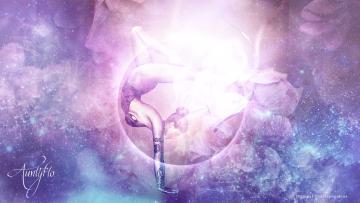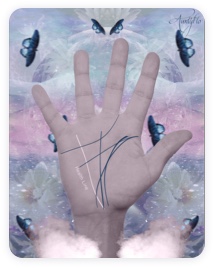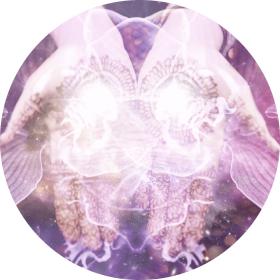The Law of Balance

Uncover hidden superstitions meanings
This is an extract from the 1910 on how to read characteristics of people.
The Law of Balance must be obeyed to become perfect in character, capacity, and health. A thing well balanced is poised so as to preserve equilibrium. It will be obvious to the student that in the study of man in relation to his dense physical body, the harmony between one part and another must be carefully considered so that in cases of predominance of one -part over another, exhibiting some eccentricity of character, proper advice may be given for the cultivation of defective parts and the restraining of over-developed parts.
In the evolution of the ego it is, of course, proper to cultivate any deficiency of the dense physical vehicle called the body, its uses, and the student will often be called upon for advice what to do in this direction. The well-balanced man has no marked deficiency to cultivate and no marked excess to restrain, and has merely to maintain the harmony and develop the whole into a higher standard of evolution, for there are degrees of balanced characters, i.e., those highly evolved and those lowly evolved.
To utilize the Law of Balance in the development of character, it is necessary to break off all undesirable habits. An outburst of temper may merely relieve one's feelings or send one mad. It is, therefore, absolutely necessary to be master of the physical body to enjoy that harmony which is so desirable. In this way the creation of fresh undesirable Karma on the physical plane may be prevented. The student will be asked which of the three physiological systems or classes of faculties is the most desirable to possess in predominance, and in attempting to answer such a query, he must bear in mind that in the great scheme of evolution, as the three systems and all the faculties are of equal importance, and that stage by stage as we evolve, each system or mental faculty becomes more and more pronounced, one after the other, in rotation, as experience demands. At one time , the Vital system may prevail over the Motive and Mental systems, and at another period the Motive system may prevail over the Mental and Vital systems, and so on.
From a physiological aspect alone, it will be seen from the following table that we may pass through at least thirteen stages of development, in any reasonable period of lime, and then commence again the spiral climb, for it will be obvious that when one system develops over the other systems, it is essential that the other systems be brought up to the higher standard to produce again the balanced condition, and thus go up one rung of the ladder of evolution of both " consciousness " and " form." Provided every man and woman would attain to what we may term ".a state of equilibrium," and would continue to live near the equilibrium or balanced condition, we should find eccentricities and diseases banished, and success in life more perfected.
But the fact is, the majority of persons are more or less out of harmony. We cultivate one quality at the expense of another and suffer accordingly, and it behoves us all to recognize at once the importance of the haw of Balance. We are, however, so constantly advocating balance, that it is as well to remember that there is a value to be set upon extremes of temperament and character. It is the balanced man who sees both sides of a question, and the unbalanced who takes extreme views, and to these we look for "advanced" or "reactionary" ideas to be nicely balanced by the man in between.
One class agitates against the other, and the balanced man benefits thereby without strife. Extremes in all things are dangerous, the safest position being occupied by the man in between, who is the level-headed, well-balanced individual. Something exceptional and eccentric must be expected from those who exhibit great predominance of any one of the three systems or any class of faculties, and it may safely be stated that any relative excess or deficiency to a certain extent mars the peace of life. Let us, therefore, learn from the imperfect how to become perfect.
By Florance Saul
Mar 27, 2013







